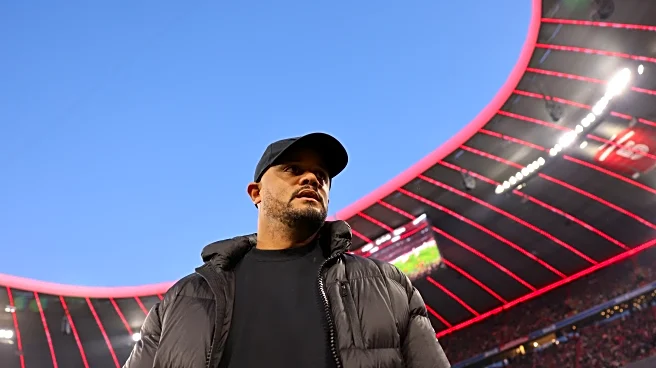What's Happening?
Triple H, WWE's Chief Content Officer, recently discussed the company's creative approach, emphasizing storytelling over match quality. He compared WWE's strategy to the Marvel Cinematic Universe, focusing on long-term character development rather than
immediate match outcomes. This approach has sparked debate among fans and critics, who argue that match quality is essential to maintaining audience interest. The Bloodline storyline, featuring Roman Reigns and The Usos, exemplifies successful storytelling combined with high-quality matches. Similarly, Rhea Ripley's rise to stardom was bolstered by her in-ring performances against top competitors. Critics suggest that WWE's focus on storytelling should not overshadow the importance of delivering compelling matches, which are central to the wrestling experience.
Why It's Important?
The discussion around WWE's creative strategy highlights the tension between storytelling and match quality in professional wrestling. As WWE aims to emulate the success of the Marvel Cinematic Universe, it risks alienating fans who prioritize in-ring action. This debate is crucial for WWE's future, as it navigates the balance between entertainment and athleticism. The company's ability to deliver both compelling stories and high-quality matches will determine its success in retaining and expanding its fan base. The outcome of this strategy could influence WWE's position in the entertainment industry and its competition with other wrestling promotions.
What's Next?
WWE may need to reassess its creative strategy to address fan concerns about match quality. As the company continues to develop long-term storylines, it must ensure that matches remain engaging and satisfying for audiences. Future events, such as WrestleMania and SummerSlam, will be critical in demonstrating WWE's ability to balance storytelling with match quality. The company's response to this debate could shape its creative direction and impact its relationship with fans. Stakeholders, including wrestlers and creative teams, may need to collaborate to enhance both narrative and athletic elements in WWE programming.
Beyond the Headlines
The debate over WWE's creative strategy raises broader questions about the role of storytelling in sports entertainment. As WWE positions itself alongside major entertainment franchises, it must consider the unique aspects of professional wrestling that differentiate it from other media. The emphasis on storytelling could lead to innovative approaches in character development and audience engagement. However, WWE must also preserve the athletic integrity of wrestling, ensuring that matches remain a central component of its product. This balance will be crucial in maintaining WWE's identity and appeal in the evolving entertainment landscape.
















